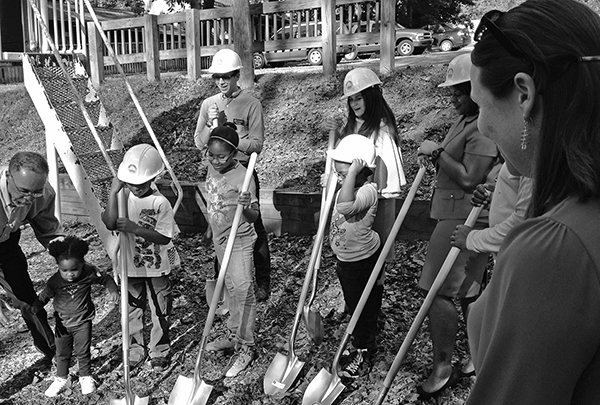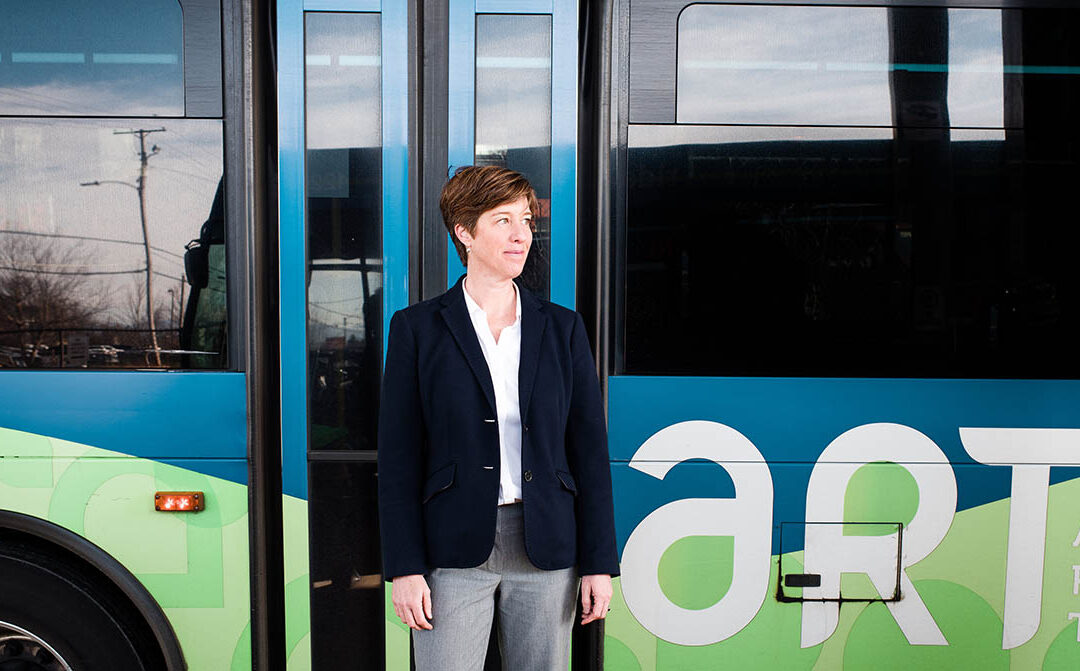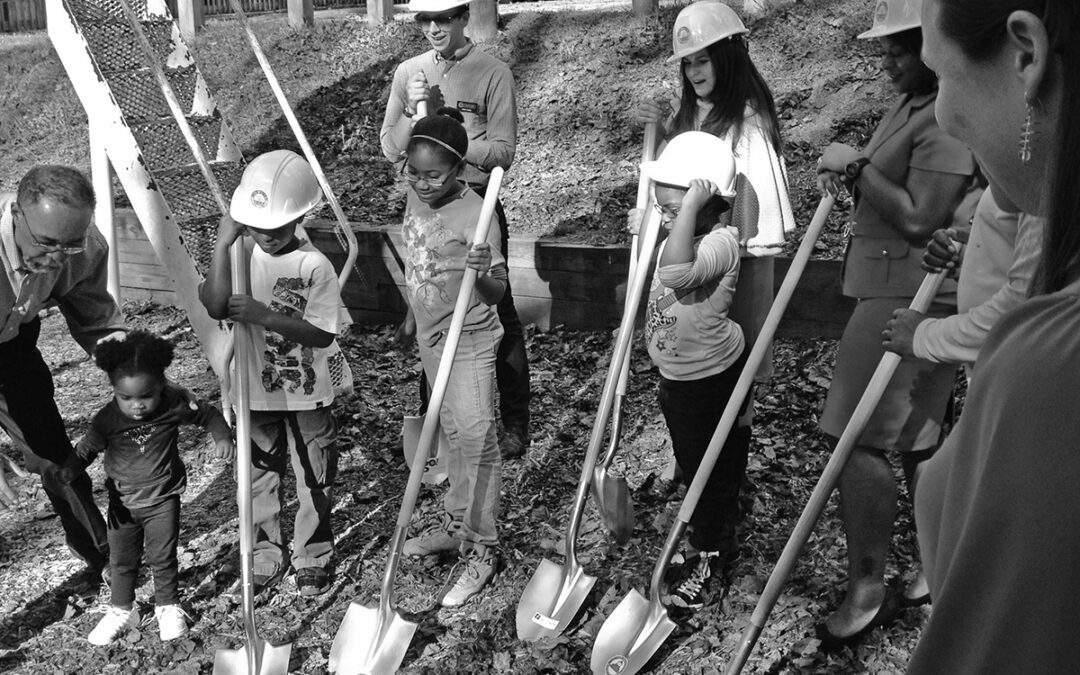MountainTrue, like most environmental organizations, has a membership, board, and staff that are largely white. Efforts to diversify, while challenging for any traditional environmental group, are particularly challenging for us given that our mountain region is 89% white. This, however, cannot be an excuse for non-action. It just means we need to work harder to diversify our staff, board and membership and to focus our programs in ways that will particularly benefit people of color and help redress systemic racism.
While we have taken steps to diversify and add new areas of focus to our program work, we have not done enough. We are just now coming to understand and accept how we, as individuals and as an organization, have benefitted from systemic racism – our staff is largely made up of privileged White people and our funding comes from foundations, businesses, and individuals that have accumulated wealth within a system of discrimination and, sometimes, at the direct expense of people of color. Likewise, understanding the role we should play in breaking that system and instead advancing equity has been a slow journey. What appears below is an attempt to illustrate that journey, at least in part, while also recognizing we can and need to do more. We invite our members and supporters to join us in our journey.
Where We’ve Been:
|

Mayor Bellamy and children of Klondyke helped the Asheville Design Center break grown on a new playground in October of 2012.
|
In terms of diversifying our program work, we have primarily worked on urban issues that are relevant to Asheville’s African American community, including the following:
- In the 1990s and the early 2000s, and then again since 2008, we have been a leading voice for expanding transit in Asheville.
- Since 2009, we have partnered with the Burton Street Community on I-26 advocacy, acting as the fiscal agent for their annual Agricultural Fair, and in developing a community plan in conjunction with the Asheville Design Center.
- Work with the Burton Street Community led directly to us working with the Shiloh Community for several years to implement aspects of their community plan, particularly their goals related to sidewalks and transit.
- Our I-26 advocacy has also engaged the Hillcrest community in discussions about designs that would be more beneficial to them.
- We support a bacteria monitoring site in the creek that runs through the Shiloh neighborhood.
- The Asheville Design Center has a long history of working with communities of color and has continued that tradition since joining us in 2017. Relevant past projects include: East of the Riverway planning, The Block Report, a playground installation at Hall Fletcher Elementary, playground design and construction at Pisgah View and Klondyke Apartments, installation of the Triangle Park Mural, design and construction of the YWCA Outdoor Classroom and Burton Outdoor Classroom.
- ADC has undertaken an assessment of land owned by the City of Asheville that could be used for affordable housing.
- Our energy advocacy and involvement in the Energy Innovation Task Force led to funding to weatherize 400 low-income homes, many of which belonged to people of color.
- We co-host the Building Our City speaker series, which has featured the work of POC professionals like Debra Campbell (Asheville City Manager), Mitch Silver (NYC Parks Commissioner), and Michelle Mapp (CEO of SC Community Loan Fund), while addressing issues of affordable housing, equitable development and healthy community design.
We have not engaged in any significant work focused on or done in partnership with the Latinx community, save for a bit of work with the Emma community related to I-26 in 2009-2010.
Internally, MountainTrue has also taken a number of steps to expand our understanding and embrace new steps on equity:
- In the recent past, we had three people of color on staff and as AmeriCorps members. We have also hosted several African American interns.
- We have been part of Everybody’s Environment since its inception in 2014 and, as a result, we are more intentional about where we advertise open positions.
- We adopted a diversity, equity and inclusion (DEI) policy.
- We require and pay for our staff to attend either Building Bridges or the Racial Equity Institute, and staff are encouraged to attend both.
- Two of our staff have attended two national Facing Race Conferences.
- We allow our staff to count as paid time, time spent volunteering with organizations focused on equity.
- We set aside a small amount of funding to sponsor events or programs led by organizations of color.
On the board, we began intentional efforts perhaps ten years ago to diversify. For the last six years at least, we have had one to five board members of color. We currently have five women of color serving on the board (out of 15 board members), including three who serve on the executive committee. We have devoted two board retreats in the last five years to DEI trainings, participated in a Z. Smith Reynolds Foundation Racial Equity Training for board and staff members, and we encourage our board members to attend either Building Bridges or the Racial Equity Institute. One of our board members manages a group called Pathways to Parks that is aimed at getting people of color into the outdoors, and we look forward to working more closely with them going forward.
Going Forward:
For the last two years, we have asked the staff to be more intentional about addressing equity in their program work. This has not been as successful as we would like, and we continue to try to be more specific. We are also struggling to include equity issues in our long term goal-setting. Some ideas for more immediate actions that have come forward recently from the board are:
- Create a page on our website that addresses equity.
- Move to action on equity issues.
- Move our members to action on equity issues.
- Make the connection between our work and equity to help our members understand.
- Allocate more money to groups led by BIPOC, including those aimed at recreation.
- Support the Racial Equity Institute.
- Raise voices of color in MountainTrue U.
- Develop relationships with HBCUs for intern and employee recruitment.
- Host a regular radio show on WRES about people of color in the environment and/or write a regular column in the Urban News.
- Try again to share our power in Raleigh with groups led by BIPOC.
- Add racial equity, health to our legislative agenda.
- Create an easy to use fish consumption and fishing access guide for people who fish for sustenance rather than just recreation.
Most of the region’s African American population is in Asheville, while the Latinx population is concentrated in a handful of counties across the region. For this reason, our equity work will look different in different parts of the region as we seek to meet the needs of specific communities.
Again, we acknowledge that we are beneficiaries of systemic racism and that our success as an organization rests on that fact. We commit to use our power and privilege as an influential organization to fight systemic racism and break down the walls of division in all the ways we can.



